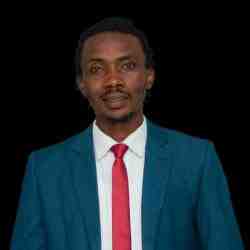Introduction
Mário Gurjão is using his business background to help citizen organizations harness their productive potentials and solve their financial problems. Using the Internet, Mário is not only training organizations to market and distribute their products; he is also increasing consumers' investment in and understanding of social change projects.
The New Idea
Mário Gurjão is creating an Internet gateway through which consumers are introduced to the people, products, services, and programs in the social sector. At the core of his idea is a virtual store, Shopping Cidadão (Citizen Shopping), which serves as a centralized marketing outlet for the growing number of organizations producing goods to generate income and thereby increase their sustainability. More than an e-commerce site aimed at selling goods, Mário's idea is to market the social sector as a whole, thereby stimulating social investment among an increasing number of e-consumers. Mário is mobilizing organizations around the region, raising their standards and creating mechanisms to stabilize their finances. Mário provides organizations with appropriate technologies, human resources, and improved organizational processes. Thanks to Mário's workshops, organizations improve their production efficiency, quality control, business management, and distribution systems. This package of services enables organizations to advertise, market, and distribute their products through the Internet. As organizations increase their financial sustainability, they can improve their services to their target communities and increase understanding and support for their social programs among consumer groups.
The Problem
Seeking solutions to their financial problems, many organizations produce revenue-generating goods and services. Other citizen groups train small producers and artisans to make and sell products that will contribute to the economic and social development of the community. These efforts usually work on a small scale, and their biggest challenge is linking the goods and services to a lucrative market. Most organizations have neither an effective marketing strategy nor the resources to create distribution channels. The latest studies show that there are approximately five hundred thousand civil society organizations working in Brazil. In the state of Ceará alone, there are approximately three hundred and ten medium-sized social change organizations and one thousand smaller community groups and associations. About 15 percent of these organizations make and sell goods and services. Organizations need channels through which they can sell their products. The flip side of this problem is that few Brazilians have information about social projects. Even fewer know of the products being created within these projects and the positive effect consumers could have if they bought them. According to ADF Consulting, a company specializing in e-commerce, Internet consumers are a fast growing consumer group in Brazil. With a projected ten million Internet users in Brazil in 2001 (one half of all users in Latin America), the potential consumer demand for local, socially valuable products has yet to be tapped.
The Strategy
Mário is creating a regional identity for organizations in the state of Ceará. He is starting with the metropolitan region of Forteleza, population four million.First, Mário is designing a database of "clients" who are producing and selling goods to help sustain their organizations or to create income in their communities. After this assessment, he will select the organizations with higher quality products and greater market potential. He will showcase these organizations on the website with information about their social missions. Mário and his team will provide training to these and the less-advanced organizations on how to increase production efficiency, product branding and marketing, distribution, and stock maintenance. Through training, the pool of products and organizations marketed on the site will steadily grow. To implement his idea, Mário is developing partnerships with citizen organizations, public authorities, nonprofit networks, and institutions dedicated to economic and social development in the region. He has already secured the support of an important group of public authorities, businesses, and citizen social change organizations who have formed the Cooperation Pact of the State of Ceará. The other principal partnerships Mário has developed to implement his idea include a website development company, a software technology firm, the Brazilian small business support agency, a university to provide technical support, and municipal organizations to provide support locally to the organizations involved. Each of these partners has pledged support for Mário's idea.Mário's business plan was one of four out of one hundred and seventy entries in the Ashoka/McKinsey Social Entrepreneur Award contest for excellence in innovation. Following this business plan, Mário is developing his website and then setting up the first center to collect and distribute the products. With the website and the distribution center in place, Mário will then work with the municipal associations to identify organizations with products to sell. Due to the physical distance between the organizations, the municipal associations will serve as contact points and facilitators for workshops Mário and his team provide. Mário's communications strategy will create a high profile and draw in young and socially conscious e-consumers. To complement his virtual Internet store, Mário is also planning to have physical stores placed strategically in major shopping centers in big cities. Physical stores will increase the profile of Shopping Cidadão and attract a larger number of consumers.Mário plans to spread his idea to other geographical regions using the network of forums and boards of the Cooperation Pacts. Within five years, Mário's goal is to incorporate the nine states of the Northeast. In each stage of the spread, he will use the partnerships he has already developed in Ceará. He will conduct a local analysis of organizations and their products, incorporate them into the Shopping Cidadão marketing strategy, and establish regional distribution centers to manage the flow of goods.
The Person
Mário grew up surrounded by entrepreneurs and adopted this spirit at a young age. He went to work for his family's business at age 15 and three years later became a partner. After ten years as a partner, he felt constrained by the family ties of the business and left to run his own service business. After three years, Mário worked at other companies to gain a broader understanding of the business world. He complemented this by studying models of organizational management a nd quality systems. However, his desire to meet new challenges and implement his own ideas convinced him to leave his "last job" in 1995 and opt for a career as an entrepreneur. Mário created different products (courses, services, etc.) and identified clients, working independently until December 1998.Though always rooted in the business sector, Mário was constantly struck by the social inequalities and contradictions around him and the gap between the business sector and communities. Through his interest in organizational management, he became fascinated by the social sector. While finishing a specialization course in Process Consulting, his good grades and creative ideas earned him an invitation to become the executive director of the Fundação Brasil Cidadão (Brazil Citizen Foundation), a position which he accepted in order to develop and implement his ideas. In addition to the idea for launching Shopping Cidadão, Mário has created and carried out various other initiatives that have had significant impact in the areas of promoting youth entrepreneurship (Young Entrepreneurs Training), business sector social investment (Movement for Social Investment), and network building among social change organizations (Social Sector Forum).




